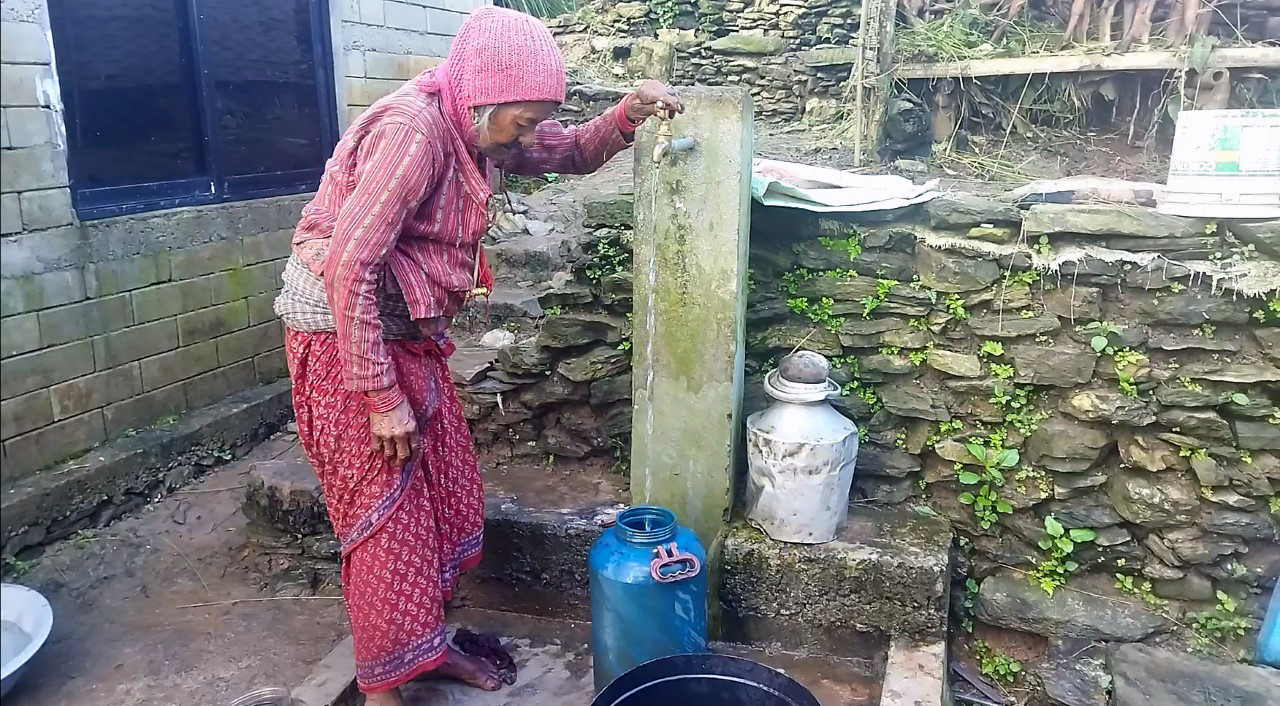The Power of Water – And the Lack of It
54 families (approximately 300 people) reside in the Balithum, Sundarbazar Municipality, in the Lamjung District of Nepal. Balithum holds the beautiful scenery of the Annapurna Mountains, and the breathtaking Marsyandi River flows just below the hill. However, even with the abundance of natural beauty, life is difficult for the people who live here.
Most of the year, individuals work as daily-wage laborers. Many families live in multi-dimensional poverty, and the lack of education makes their situations even more challenging. Women typically have to travel about two hours a day just to collect water. Rural residents are on the verge of moving out of their communities because they do not have the necessary resources to bring water into their village.
Not only is water vital for daily life, but the lack of it has the power to take life away. Vegetables cannot grow in dry ground. Students miss school or do not complete their homework because they are helping carry water. Mothers are not able to prepare food for their children in time before the school day starts, also causing children to miss classes. Families are unable to keep livestock because they don’t have enough water for them. General health and cleanliness are a concern. The list of negative effects goes on and on.
Local community members have tried to get water to the village before but failed because the source of water was 500 meters below ground. They did not have the technical expertise or resources to procure this necessity.
Coming Together for the Better
When CHOICE initiated the Balithum Water Supply Project in 2020, the goal was to supply water to three communities: Balithum, Ramadi, and Akala of Sundarbazar Municipality. To accomplish this, different engineering techniques were applied—water lifting technology was used in Balithum, and gravity flow technology was used in Akala and Ramadi. As the Nepal team in CHOICE provided support, resources, and expertise, local families provided labor to dig trenches, haul construction materials, and build tap stands.
.jpg?width=2048&height=1536&name=Nepal%20spotlight%20for%202021%20annual%20report%20(7).jpg)
Originally, because of limited resources for the project, the community planned to construct water systems in only two of the three listed communities. However, with the enthusiastic participation of locals, partnership from the local government, and cost-efficient project management from CHOICE, the communities developed all three locations.
Bringing Water and Life
Thanks to the combined efforts of CHOICE Humanitarian, the CHOICE team in Nepal, and the efforts of locals, over 300 individual homes were provided with metered water.
At the end of 2021, 336 families across the three communities were now able to access a clean, affordable, and reliable water supply because of this project. The quality of life of the people in these communities has improved significantly. Children are cleaner, and they can attend school more regularly. Women no longer have to spend hours each week hauling water. Some families have started household gardens.
To make cooking easier and safer, other families are building biogas digesters (a methane gas method derived from human and animal waste) that eliminate smoke and the need to gather firewood. Running water in the yard of every house has hugely impacted this community and reduced one of the key dimensions of poverty.
A Life-Changing Spigot for Aaiti
For over six decades, 81-year-old Aaiti Maya Sarki of Nepal has woken up at 5 AM every day and walked an hour each way to the closest spring to collect her daily water.
As part of the Balithum Water Supply Project, she received potable water in her front yard. Her life has been transformed by the installation of a water spigot from CHOICE Humanitarian, Latter-day Saint Charities, and Sundarbazar Municipality. Not only that, but she can now grow and sell vegetables to provide much-needed income for her family. Aaiti is on a path out of poverty.

Aaiti shared this: “No one outside our village listened to our plight, as we are poor. When I heard about the project for the first time, I was skeptical, as similar projects had come and gone without any work on the ground. When finally, the water came to my yard, it was one of the greatest blessings."